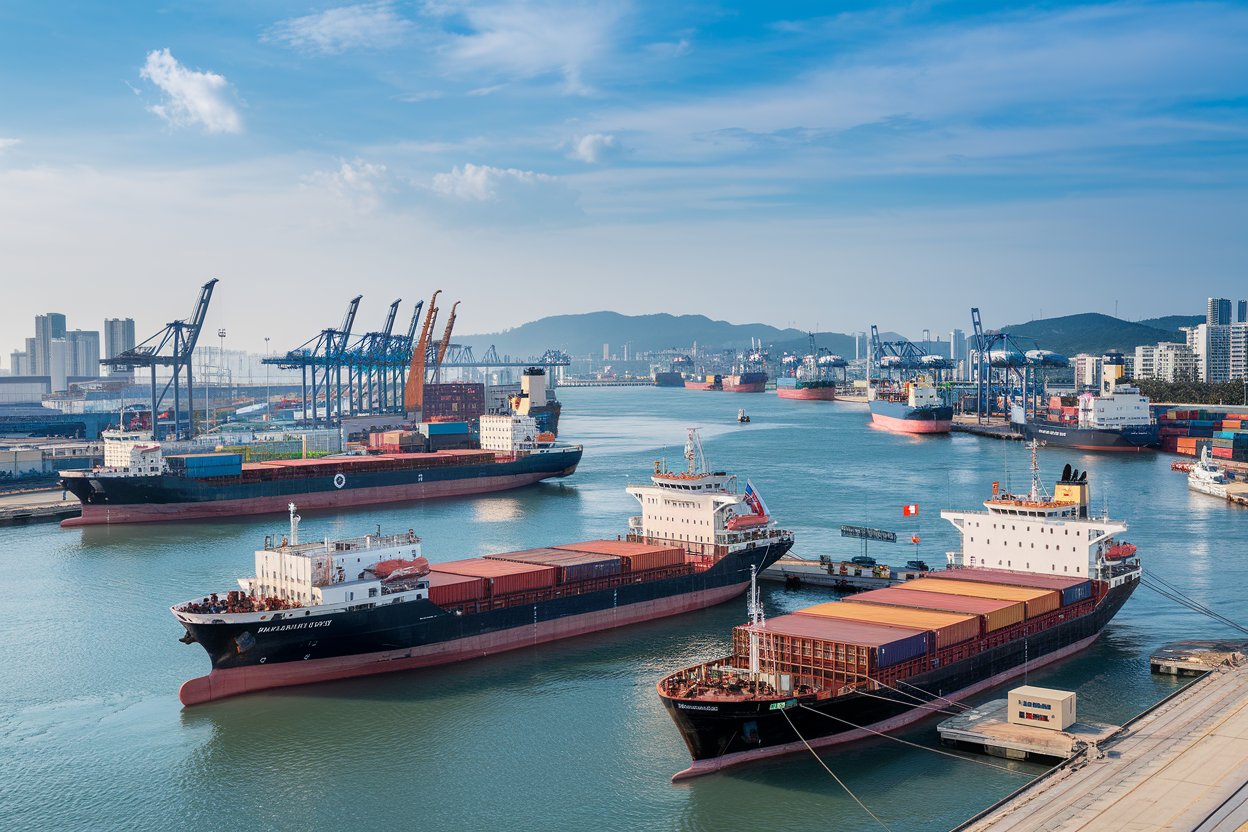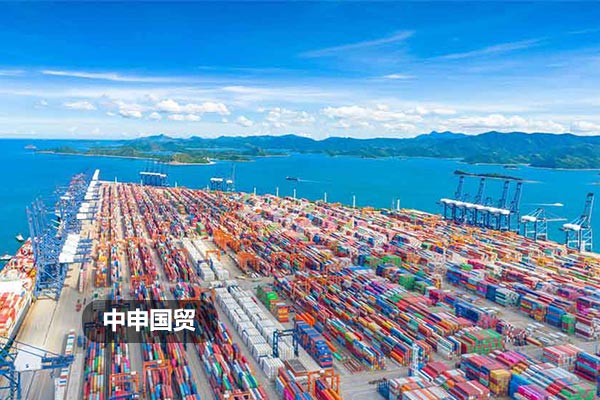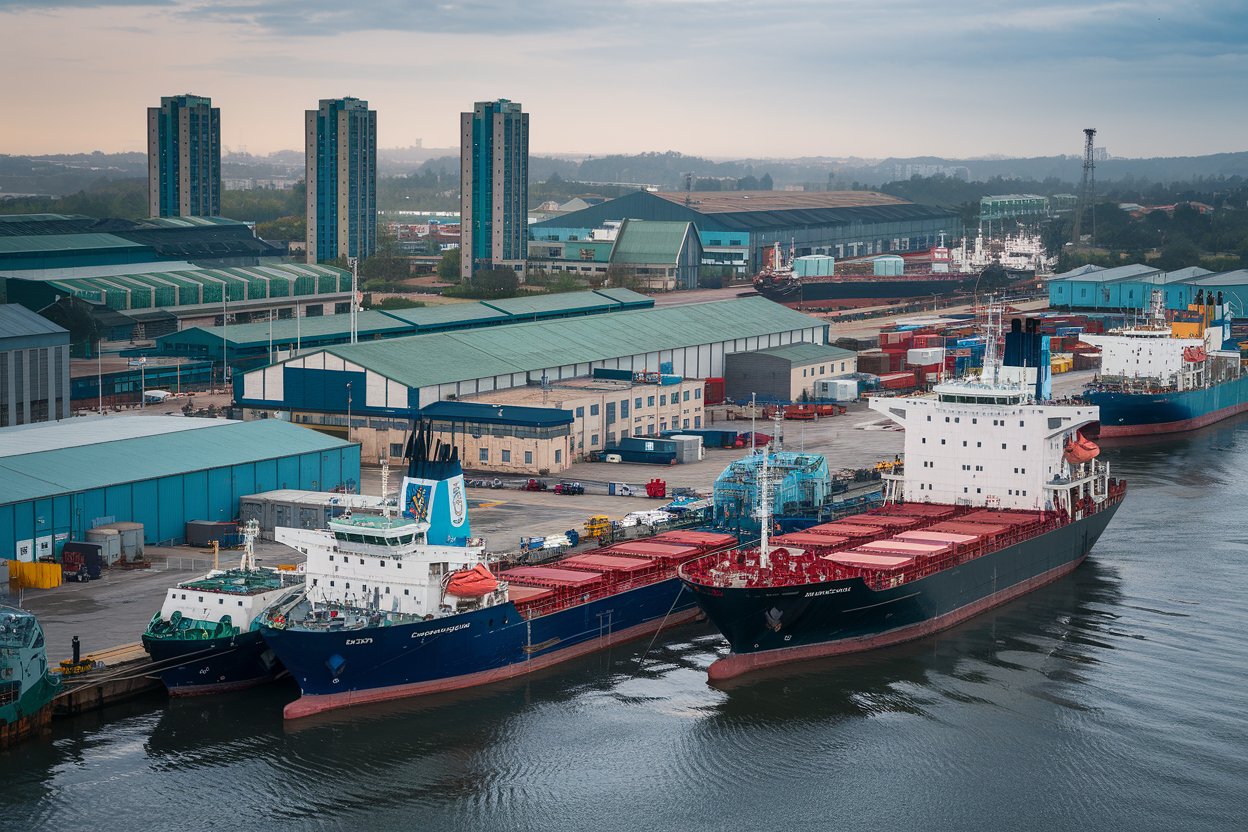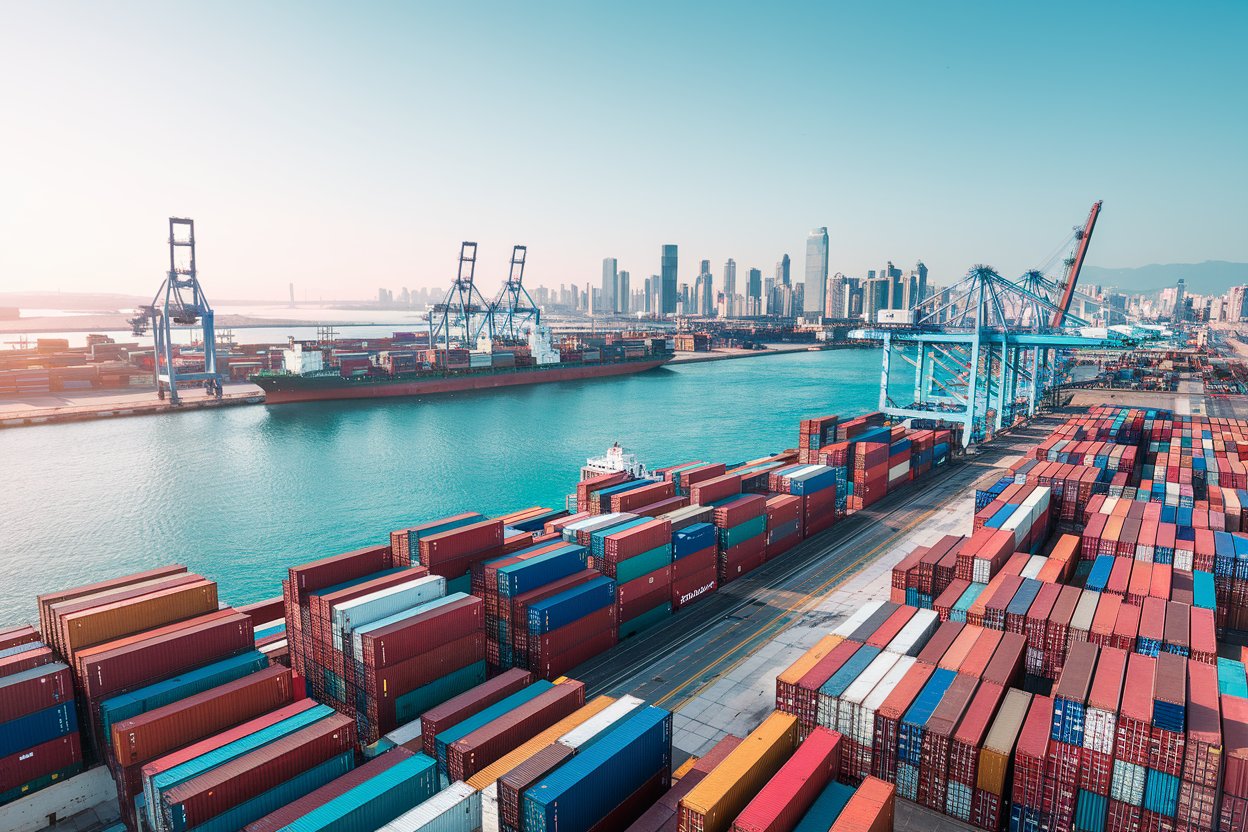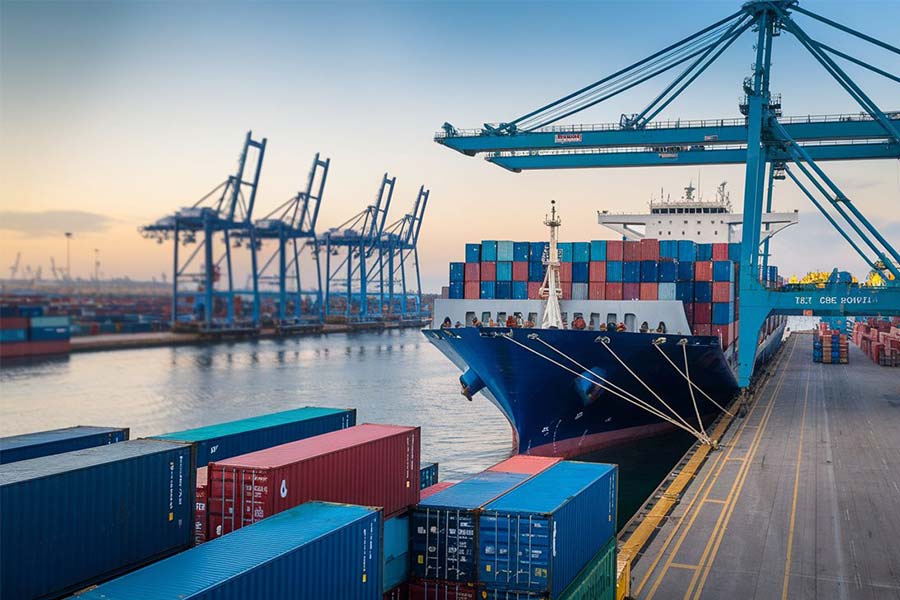- 20 Years of Expertise in Import & Export Solutions
- +86 139 1787 2118

Importing German Molds: Opening?Foreign trade?New journey
In today's deeply integrated global manufacturing, importing molds from Germany can undoubtedly inject strong technical vitality and quality assurance into an enterprise. However, the foreign trade process for importing molds is like a complex maze, requiring professional and precise operations. This is precisely where?Zhong Shen?'s expertise lies. With its deep accumulation in the import?Export Agency?service field, especially its outstanding capabilities in document handling and logistics services, it can provide a safeguard for your German mold import journey.
Professional Document Handling: Laying the Foundation for Imports
When importing molds, document handling is the crucial first step. A series of documents, from the commercial invoice and bill of lading to the packing list and?Certificate of Origin?certificate, each carry important information, like the "ID card" of a foreign trade transaction. The professional team at ZhongShen is well-versed in international trade regulations and the customs requirements of various countries and can handle all types of documents with precision.
For example, German mold exports usually provide detailed product specification descriptions, quality inspection reports, and other documents. We will carefully review these documents to ensure they are consistent with the actual goods and at the same time meet the domestic customs declaration requirements. For the certificate of origin, we will accurately fill in all the information in strict accordance with the rules of the free trade agreement signed between China and Germany to ensure that the imported molds can enjoy the corresponding preferential tariff policies, saving costs for the enterprise.
In the document handling process, we will follow the principle of "consistency between documents and between documents and goods." The goods description, quantity, and value on the commercial invoice must be consistent with other documents such as the bill of lading and packing list, and also with the actual goods. Such rigorous operation can not only avoid problems during customs inspection and ensure the smooth customs clearance of the goods, but also lay a solid foundation for subsequent logistics,?Foreign exchange settlement?, and other links.
Efficient Logistics Arrangement: Unobstructed Transport Network
Logistics arrangement is also crucial in the process of importing molds. As a major European manufacturing powerhouse, Germany has a wide distribution of mold production enterprises. ZhongShen, with its rich logistics resources and years of operational experience, can formulate a personalized logistics plan based on the actual situation of the goods and the client's needs.
If the mold is small in volume and light in weight, we might recommend choosing the?Air freight?method. Departing from major German airports such as Frankfurt Airport, direct flights to major domestic cities have a short transport time and can quickly meet the client's urgent needs for molds. During air transport, we will work closely with professional airlines and freight forwarders to ensure the safe transport of the goods, and at the same time, handle the relevant freight insurance to provide a safeguard for the goods.
For molds that are larger in volume and heavier in weight,?Ocean shipping?is a more economical choice. We will arrange for the goods to be shipped from major German ports such as the Port of Hamburg and the Port of Bremen to coastal ports in China, such as the Port of Shanghai and the Port of Ningbo. During sea transport, we will pay close attention to the shipping schedule dynamics and handle the booking, customs declaration, and other procedures for the goods in advance to ensure they are shipped on time. At the same time, we will also carry out reasonable packaging and reinforcement of the goods based on the characteristics of the molds to prevent damage during transport.
Whether by air or sea, we will provide full-process logistics tracking services. Through modern information technology, clients can have real-time knowledge of the transport status of their goods. From the moment the goods leave the German factory to their arrival at the destination in China, every link is under control.
Russian Market: VTB Settlement Convenience and Advantages
Although this article focuses on importing German molds, we must mention the Russian market, as it is one of ZhongShen's key markets, and we have a unique advantage in settlement. As a globally important economy, Russia has close trade cooperation with China. In the mold import business, if it involves re-export from Russia or trade with Russian enterprises, ZhongShen has VTB settlement convenience for the Russian market.
Settlement of exchange, simply put, is the process of converting foreign exchange income into the national currency at the exchange rate. In trade with Russia, due to the special nature of Russia's financial system and trade policies, the settlement process may face many challenges. VTB Bank (Vneshtorgbank), as an important financial institution in Russia, has established a long-term stable cooperative relationship with ZhongShen.
Settling through VTB Bank is a simpler and faster process. Enterprises do not need to worry about cumbersome procedures and complex approval processes and can quickly convert the received rubles or other foreign currencies into RMB. This not only improves settlement efficiency and reduces the time that capital is tied up, but also effectively reduces the risks brought by exchange rate fluctuations. For example, in previous business, a certain enterprise imported molds from Russia. Through the VTB settlement channel, the settlement process, which originally took 10 working days, was shortened to 5 working days, which greatly improved the efficiency of capital use and provided strong support for the enterprise's subsequent operations.
It is recommended to choose based on transportation distance and product characteristics:?Import/export?Process and Solution
The Southeast Asian region has experienced rapid economic development in recent years and occupies an increasingly important position in the global trade landscape. For situations where, after importing molds from Germany, there may be re-export to the Southeast Asian market, or direct cooperation with Southeast Asian enterprises to carry out mold-related business, ZhongShen also has a detailed process and a complete set of solutions.
Taking the export of molds from China to a Southeast Asian country as an example, the first stage is market research and customer development. We will assist enterprises in gaining an in-depth understanding of the mold market demand, competitive situation, and trade regulations of various Southeast Asian countries. Different countries may have different requirements for the quality standards and technical parameters of molds. For example, Singapore has high requirements for the precision of molds, while Indonesia pays more attention to the cost-performance of molds. Through precise market positioning, we help enterprises find suitable target customers.
After confirming the intention to cooperate, it is the contract signing stage. We will formulate detailed contract terms based on international trade practices and the results of negotiations between the two parties. The contract will specify important content such as the specifications, quantity, price, delivery date, and payment method of the goods. In terms of payment methods, common ones are?L/C?(L/C), Telegraphic Transfer (T/T), etc. For first-time cooperation with clients, we usually recommend using a letter of credit to ensure that the interests of both parties are protected.
Next is the?Customs Declaration?stage. We will prepare all types of documents required for customs declaration, such as the commercial invoice, packing list, customs declaration form, and export license (if required). The information of the goods will be declared truthfully according to the regulations of the customs to ensure a smooth customs clearance. During the customs declaration process, it is important to pay attention to the customs policies and declaration requirements of different countries. For example, Vietnamese customs is relatively strict in its review of the origin of goods. We will ensure that an accurate certificate of origin is provided.
After the goods are cleared through customs, it is the logistics and transport stage. The appropriate mode of transport is chosen based on the destination of the goods and the client's requirements. If the destination is a nearby country such as Malaysia or Thailand, sea freight is a more common choice; for some urgent orders or small-batch goods, air freight can be considered. During the transport process, the tracking and insurance of the goods must also be done well.
When the goods arrive at the destination port in Southeast Asia, it is also necessary to assist the client in handling the?Customs Clearance?procedures. This includes submitting relevant documents and paying customs duties and value-added tax to ensure that the goods can be successfully delivered to the client.
The current international trade situation: challenges and opportunities coexist.
The current international trade situation is complex and ever-changing, which brings many challenges to the business of importing German molds, while also holding many opportunities.
In terms of challenges, the rise of trade protectionism is a problem that cannot be ignored. In recent years, some countries, to protect their domestic industries, have introduced various trade restriction measures, such as imposing tariffs and setting up technical barriers. This has greatly increased the cost of imported molds and at the same time, has placed higher demands on the quality and technical standards of the molds. For example, the United States has imposed high tariffs on some mold products imported from Germany, which not only increases the procurement costs of enterprises but may also affect the competitiveness of the molds in the international market.
In addition, the ongoing spread of the global pandemic has also had a huge impact on international trade. Logistics blockages and supply chain disruptions are frequent. In the process of importing molds, one may face situations such as delayed delivery of goods and rising transport costs. For example, due to port congestion caused by the pandemic, the detention time of goods at the port is extended, which increases warehousing costs and the financial pressure on enterprises.
However, challenges and opportunities always coexist. With the gradual recovery of the global economy, the demand for molds in the manufacturing industry is also constantly growing. Especially the rise of emerging economies has provided a broader market space for imported German molds. For example, the manufacturing industry in Southeast Asia, the Middle East, and other regions is developing rapidly, and the demand for high-end molds is growing vigorously. This provides importers with more cooperation opportunities and market potential.
At the same time, the rapid development of digital technology has also brought new opportunities to international trade. Through e-commerce platforms, digital logistics tracking systems, and other means, trade efficiency can be improved and operating costs can be reduced. ZhongShen actively adapts to this trend, using digital tools to optimize the document handling and logistics arrangement process to provide clients with more convenient and efficient services.
Product Certification Service: Assisting in the Compliant Import of Molds
When importing German molds, product certification is an essential step. Different countries and regions have different certification requirements for molds, which involve many aspects such as the safety and quality standards of the molds.
For example, EU countries usually require molds to comply with CE certification standards. CE certification is a mandatory certification in the EU market, indicating that the product complies with relevant EU directives and harmonized standards. In the process of applying for CE certification, it is necessary to test and evaluate the mechanical safety, electrical safety, and electromagnetic compatibility of the mold.
In China, imported molds may need to comply with relevant national and industry standards, such as GB standards. Although ZhongShen does not directly provide certification services, with its extensive experience, it will assist clients in understanding the specific requirements and procedures of the required certifications. We will provide clients with detailed certification guidance, informing them of the materials, test items, and choice of certification bodies that are needed. At the same time, we will also maintain close contact with professional certification bodies to provide clients with necessary consultation and assistance to ensure that the molds can successfully pass the certification and be imported in compliance.
In conclusion, when importing molds from Germany, choosing ZhongShen means choosing a professional, efficient, and comprehensive foreign trade agency service. We will, with our exquisite document handling and logistics arrangement capabilities, respond to the challenges of the international trade situation, seize opportunities, and help your mold import business to flourish.
? 2025. All Rights Reserved.
